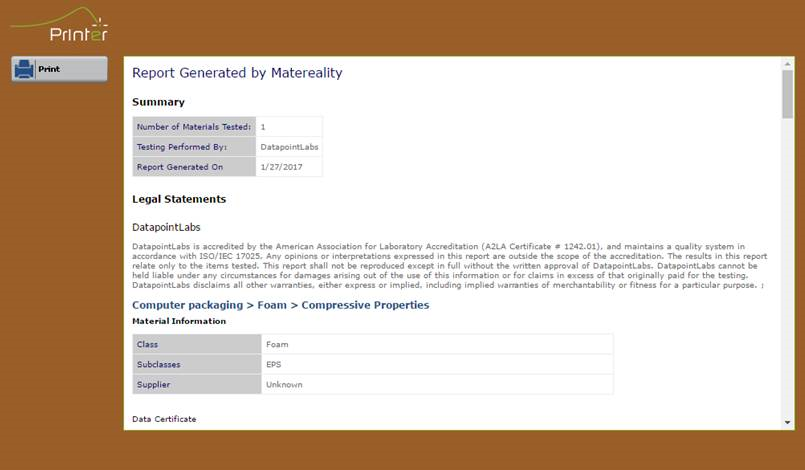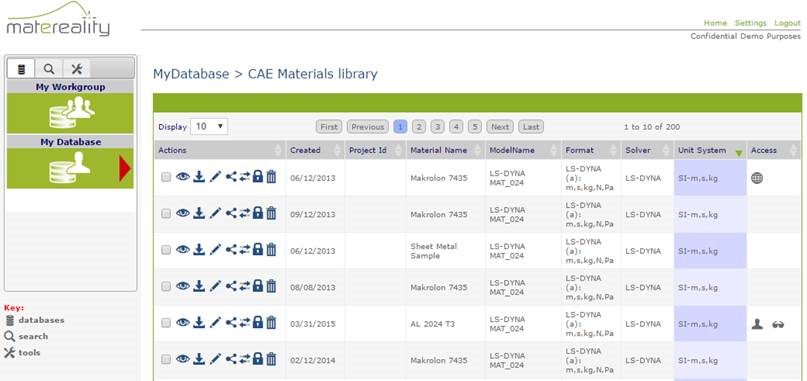| Upcoming Presentations | |||||
DatapointLabs Technical Center for Materials will present at the following technical conferences. Look for us if you are attending, or contact us to set up an appointment to meet with one of our representatives there.
|
|||||
| Expanded Validation Capabilities for Crash & Drop Test Simulation | |||||
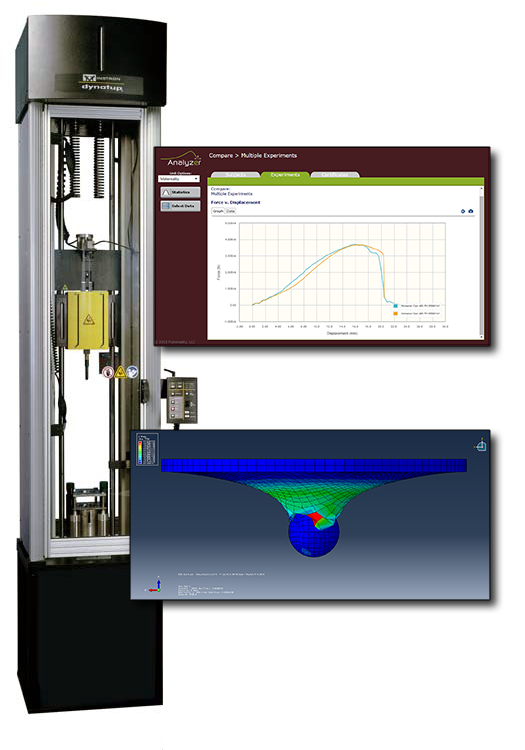 DatapointLabs is adding a second impact tester from Instron/Dynatup to expand capacity for its CAETestBenchTM business. CAETestBench provides a service for the validation of simulation by performing complex tests with standardized geometries that can be correctly replicated in simulation. This mid-stage validation provides a quantification of simulation accuracy before the simulation is used in real-life situations, bringing increased confidence and reducing the risk of poor outcomes later in the product development process. The new instrument will provide increased capability for the validation of dynamic drop test and crash simulations. DatapointLabs is adding a second impact tester from Instron/Dynatup to expand capacity for its CAETestBenchTM business. CAETestBench provides a service for the validation of simulation by performing complex tests with standardized geometries that can be correctly replicated in simulation. This mid-stage validation provides a quantification of simulation accuracy before the simulation is used in real-life situations, bringing increased confidence and reducing the risk of poor outcomes later in the product development process. The new instrument will provide increased capability for the validation of dynamic drop test and crash simulations. |
|||||
| Stress Relaxation for Hyper-Viscoelastic Simulations of Rubber | |||||
| Stress relaxation measurements are used to capture long-term viscoelastic behavior. These data can be used directly as inputs to simulation as normalized modulus v. time curves. Such data have been measured traditionally with dynamic mechanical analyzers using short term measurements coupled with time-temperature superposition, a technique which is limited to small-strains usually below 1%. With growing interest in viscoelasticity of rubber and elastomeric materials at high compressive strains, DatapointLabs is installing 16 new stress relaxation fixtures to perform this test (M-266). The long term stress relaxation experiment can be used to expand the viscoelastic modelling to higher strains, and to investigate how stress relaxation changes with imposed strain. Performed in conformance with ASTM D6147, the 1,000-hour test could provide value for hyper-viscoelastic simulations and for explorations of the new PRF material model in Abaqus. This test can also be performed at non-ambient conditions to evaluate the effect of temperature for thermo-mechanical viscoelastic simulation. | |||||
| Viscosity of Moisture-Sensitive Plastics | |||||
| The viscosity and mechanical properties of certain plastics such as nylon and PET are greatly affected by moisture. Improper moisture content can adversely affect the finished molded product; material suppliers will therefore declare the recommended moisture content for these materials. It is critical that samples be dried to the proper moisture level to produce meaningful viscosity data that accurately represents the material. Otherwise, this can affect pressure predictions in injection-molding simulations. A new test, D-017, has been added for the preparation of moisture-sensitive materials prior to viscosity measurement. Materials are dried to the target moisture content, verified with moisture measurements by Karl Fischer titration. | 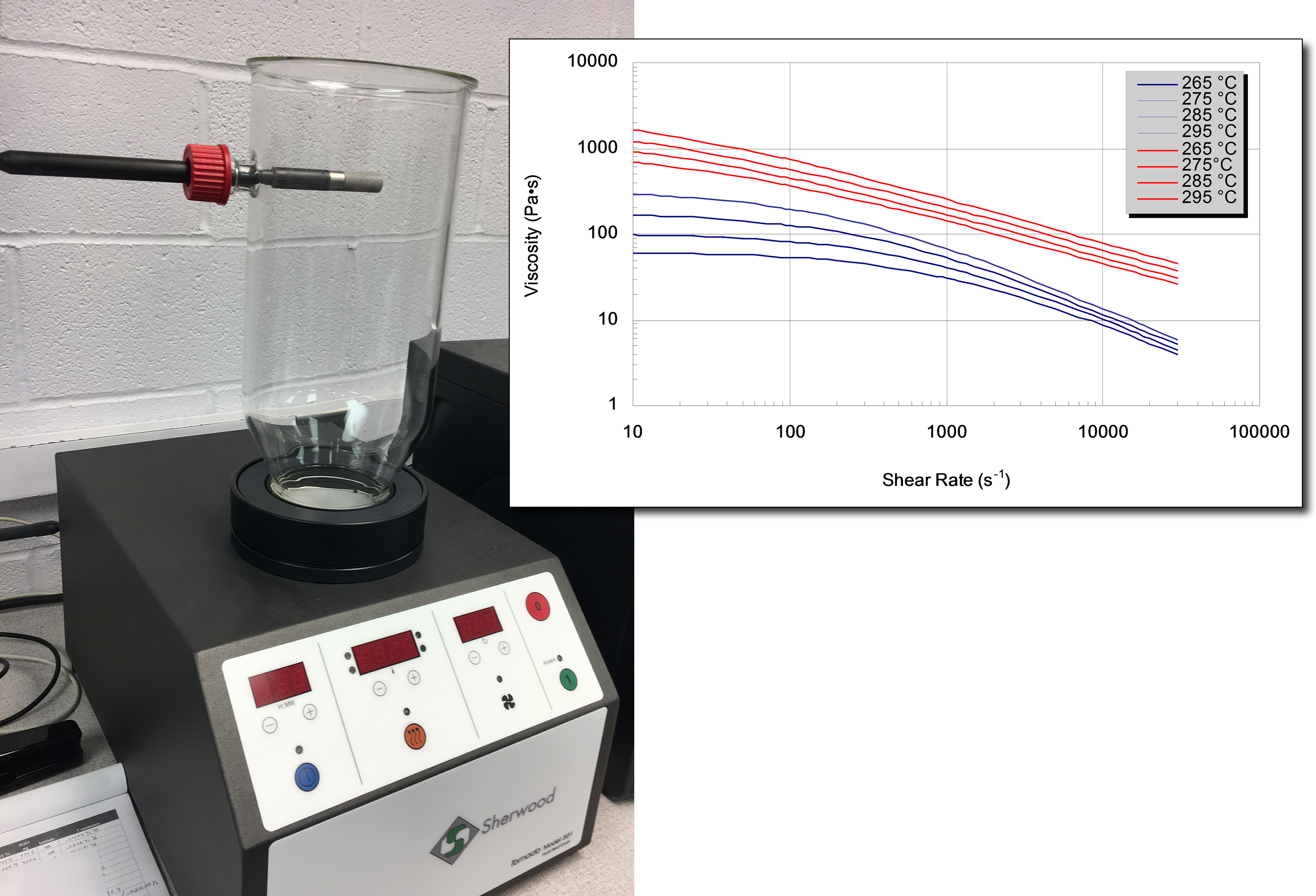 |
||||
| New Tests for Composite Strength / Expanded DIC Capability | |||||
| Open-hole tension and compression tests are commonly used for the testing of composite materials to evaluate strength of these materials when compromised by a through hole, typically used for fasteners. When coupled with digital image correlation (DIC), these standardized tests could carry additional value for the validation of simulation. Find new tests M-050 and M-051 in the online Test Catalog. Advanced Video Capability with DIC DatapointLabs have increased capacity for strain measurement using non-contact methods with the addition of two more video extensometers. The new capability will increase throughput for hyperelastic tests on rubbers, shear properties, and for compressive measurements of plastics and composites, which are increasingly in high demand. |
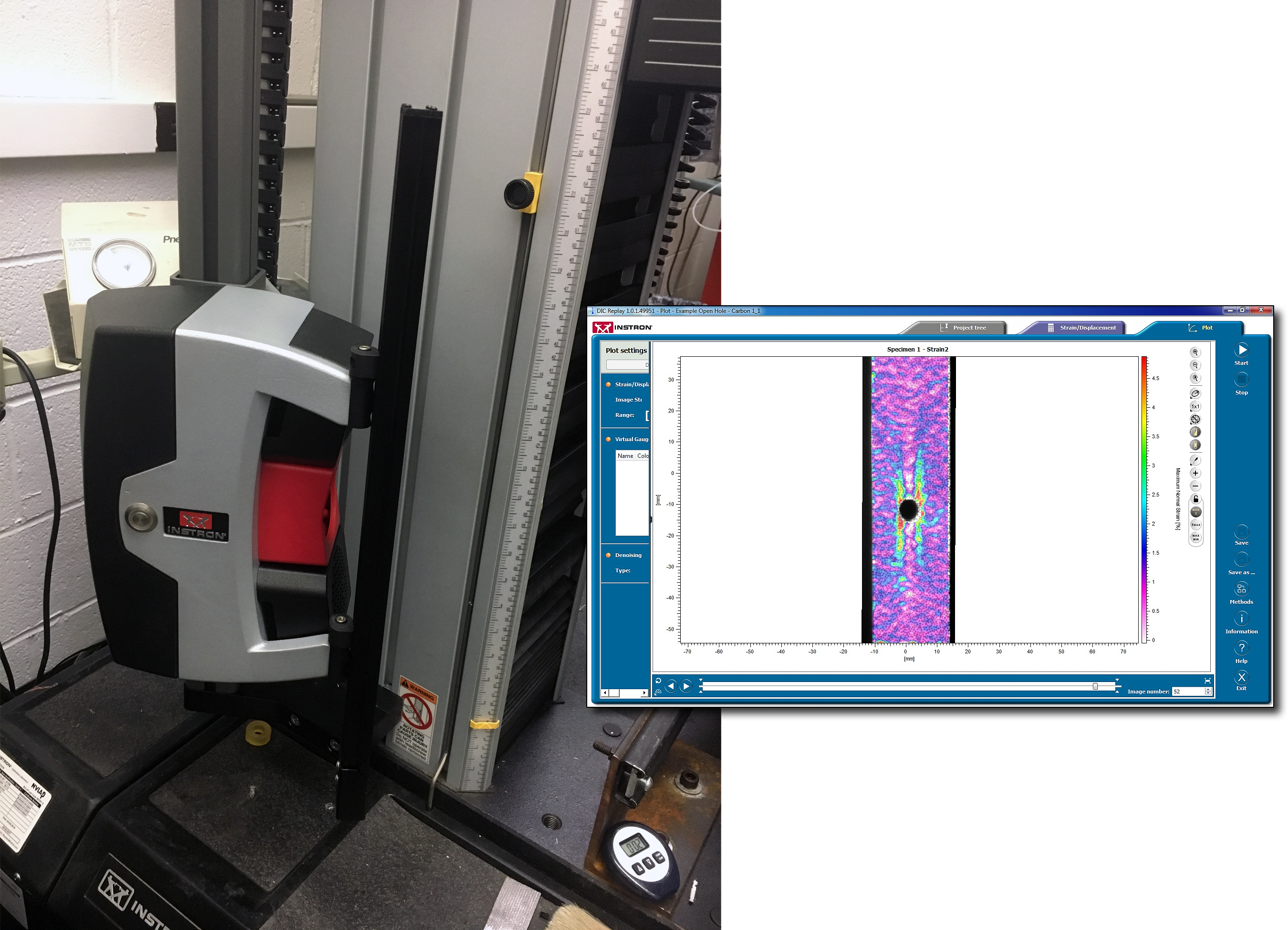 |
||||
| Matereality® 10.2 Introduces Excel Data Imports, Automatic Report Generation, CAE Material Library Features | |||||
|
|||||
|
|
|||||
 |
strengthening the materials core of manufacturing enterprises |
||||
|
DatapointLabs Technical Center for Materials | 95 Brown Road #102, Ithaca, NY 14850 USA | T: +1-607-266-0405 | US toll-free: +1-888-DATA-4-CAE | EU: +353 1 442 9204 | info@datapointlabs.com |
|||||



